We are very fortunate, indeed, that Mikhail Glinka, born on 1 June 1804, left us a detailed account of his life and works in his Memoirs. Began in June 1854, Glinka was not recording his life story, because he strongly believed that one day he would become the subject of a biography. Instead, he explained, “I am writing these reminiscences without any attempt at stylistic beauty, but am recording simply what happened and how it happened in chronological order, excluding everything that did not have a direct or indirect relationship to my artistic life.”
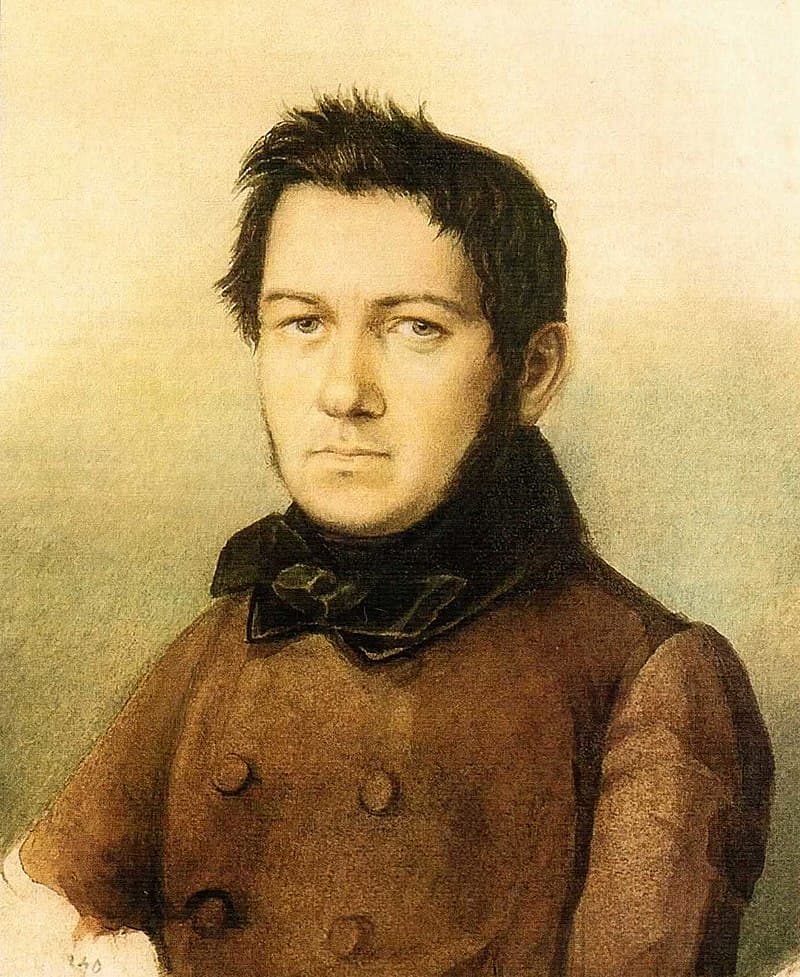
Portrait of Mikhail Glinka, 1840
And while such self-ruminations do pose a number of factual challenges, they nevertheless provide a fascinating glimpse into the mind of a composer frequently called the “Father of Russian music.” The Glinka family was well established in the Smolensk region by 1654. They were landowners loyal to the Tsar, and the composer’s father Ivan retired from the army with the rank of captain. He married his second cousin Yevgeniya Andreyevna in 1802, and their first son Aleksei died in infancy.
Mikhail Glinka: Variations on a Theme of Mozart in E-flat Major (Inga Fiolia, piano)
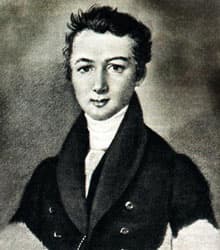
A portrait of Mikhail Glinka as a young man
As Glinka reports, “I was born at dawn on 1 June 1804 in the village of Novospasskoye, and soon after my birth, my mother was forced to leave my initial upbringing to my paternal grandmother, Fekla Aleksandrovna.” We can detect a slight hint of resentment in Glinka’s account as he writes, “Once she had taken possession of me, she removed me to her room, where, together with my two nurses, I spent the next three or four years, seldom seeing my parents. As a child, I was delicate and subject to nervous and other disorders; my grandmother, an aged lady, was almost always unwell, and her room, in which I was confined, was kept at a temperature never lower than 25 Celsius.” She fed him copious amounts of sweets, wrapped him in fur, and instigated emergency measures if the boy had the mere sniffles. As you might well imagine, Glinka grew up to become a veritable hypochondriac, always alarmed about the smallest physical or psychological symptoms.
Mikhail Glinka: Overture in G minor (Musica Viva Moscow Chamber Orchestra; Alexander Rudin, cond.)
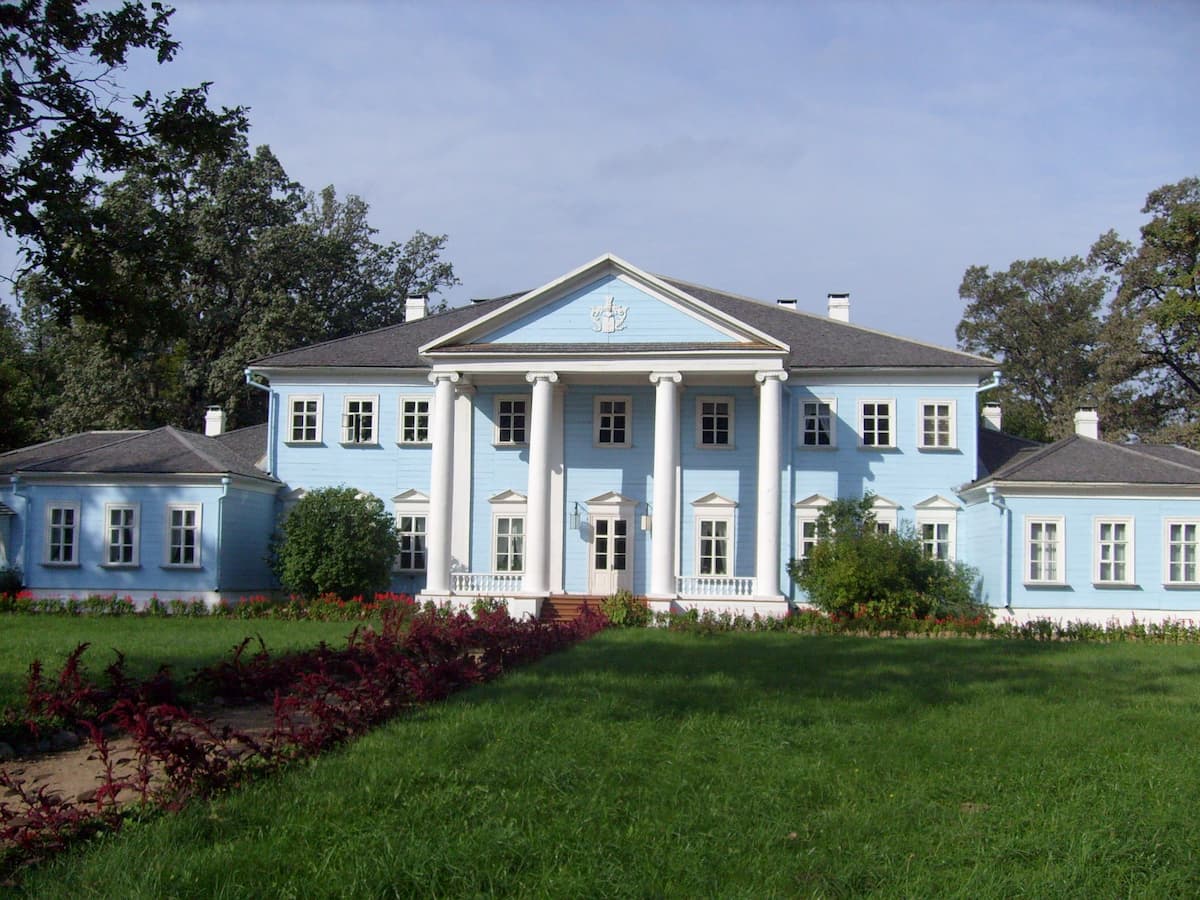
Glinka Museum-Residence (Novospasskoye)
According to some biographers, his grandmother unwittingly did more for Glinka than simply undermine his naturally delicate constitution. “By this incarceration, she efficiently cut him off from almost all music, except for that which he might hear in church and folk-song.” Initially, the influence of church music was confined to the ringing of the famous bells of the monastery church at Novospasskoye, and folksongs he heard from his nurse, “a young, cheerful woman who knew many different tales and songs.” When his grandmother passed away, his mother spoiled him less and even tried to accustom him to fresh air. Glinka moved to his maternal uncle’s estate, who maintained a small chamber orchestra of his own serfs. Glinka remembers, “when I was ten they played a clarinet quartet by Crusell. The music produced an incomprehensible, new, and delightful impression upon me. I remained for the whole day in a sort of feverish condition… I was thinking all the time only of music and decided that music is my soul. And, indeed, from that time I passionately loved music.” Having received instruction in Russian, German, French, and geography, his governess also taught him the rudiments of playing the piano and the violin.
Mikhail Glinka: Tol’ko uznal ya tebya (I had but recognized you) (Nikolai Gutorovich, tenor; N. Bogelava, piano)
Mikhail Glinka: Ya zdes’, Inezil’ya (I Am Here, Inezilla) (Georgi Nelepp, tenor; Nikolai Reznikov, piano)
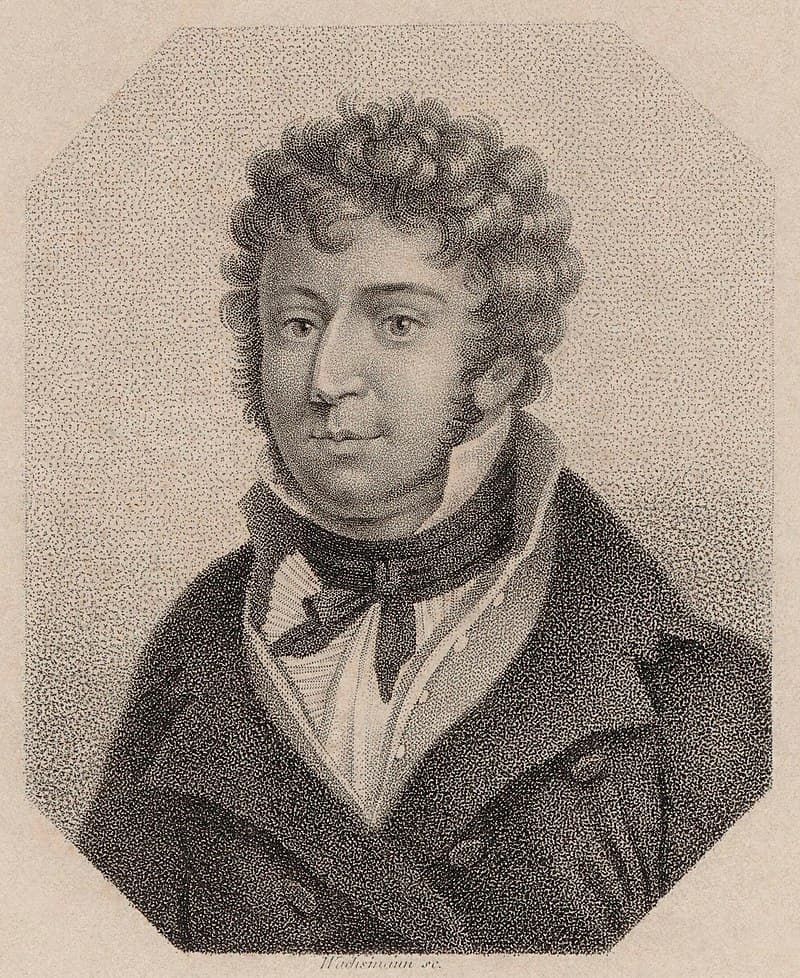
John Field, 1820
Glinka was sent to the capital, Saint Petersburg, at the age of 13 to attend a school for children of the nobility. Receiving lessons in a variety of subjects, including Persian and zoology, Glinka approached the famed Irish pianist John Field for piano lessons. Glinka only took three lessons from him, as Field quickly departed for Moscow. Glinka always spoke highly of Field as a pianist, and he certainly knew his piano music well. Apparently, he learned Field’s Second Divertimento and studied the First Piano Concerto with his subsequent teacher. When Glinka improvised in front of an audience, Hummel reports “he played gently, precisely, as though he had already composed the piece and learned it thoroughly by heart.”
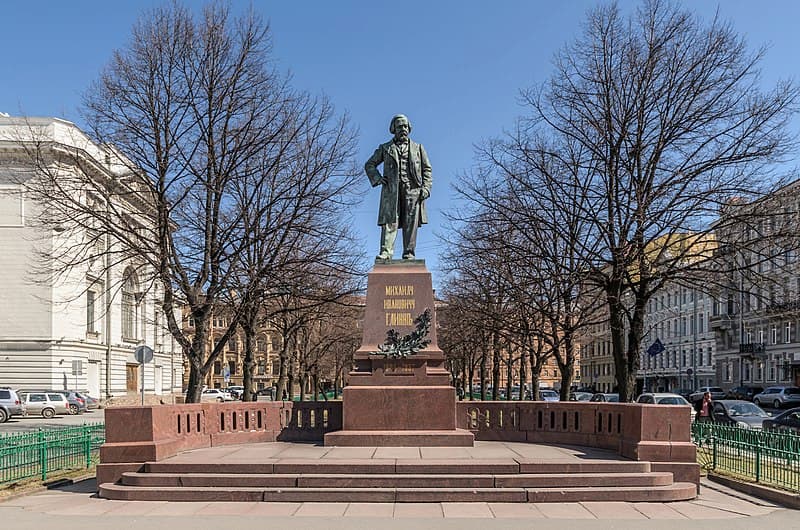
Glinka’s monument in St. Petersburg
During his time in Saint Petersburg, Glinka absorbed all aspects of Western music, “hearing recent operas and the best singers, making the acquaintance of fine, large-scale choral works, and absorbed the instrumental music of Western Europe.” And significantly, he began to compose.
For more of the best in classical music, sign up to our E-Newsletter
Mikhail Glinka: String Quartet in D Major (Shostakovich Quartet)
